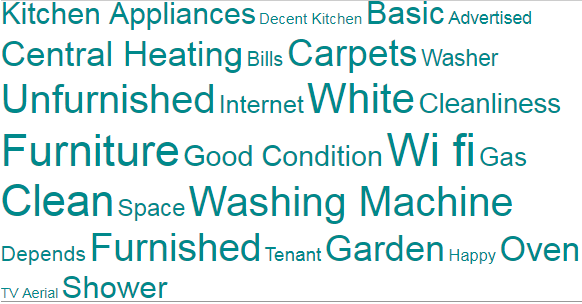Landlord Checklist: 10 Tips To Prepare For A Tenant Viewing
Preparing for a viewing falls into two equally important elements; getting the property prepared and getting yourself prepared. Our favourite tips cover both of these in equal measure.

How do you prepare for a viewing?
1. Make sure I have all benefits to renting the property at the forefront of my mind. (Collette Hutter)Give as much information as possible to prospective tenants about the property and ensure I'm honest and genuine when asked questions.
2. Call the leaving tenants and find out what's going on with them (Yael Biran)I make sure they know I am coming, I make sure I ask them to make the place nice, I make sure I know if they are in or out. Happy tenants are the best selling point for finding new tenants. If the viewing people see the leaving ones like the place and they can hear from them about what kind of land lady I am then they are much more likely to want to rent it.
3. Make sure it offers aspirational living (Zoe Smith)Don't require them to use their imagination. Unlike buyers, renters aren't looking for the opportunity to add value.
4. Arrive early, open the windows (summer), switch on the lights, turn the heating on (winter), spray air freshener, check the garden's OK (Ed Bembridge)
- Take relevant paperwork: blank application form, and blank receipts for referencing and holding deposits
- Take evidence to sell yourself: trade membership, accreditation, previous tenant testimonials, etc
- Pre-answer questions: how much for council tax, utility bills, etc
- Text the prospective tenant to confirm their viewing
- Offer to pick them up if they're on public transport
- Take the house folder with useful info, instruction manuals, local info, doctors, public transport, places of interest, etc
Watch our FREE landlord webinar on "How to Conduct a Successful Viewing"
5. Ensure the property is in the condition you will want the tenant to keep it in (Gillian Kirkman)
- Have a copy of the tenancy agreement, utility bills, council tax, water charges, insurance and gas documents that are all up to date - checking the dates of gas safety / insurance / PAT testing of electrics are current
- Have a copy of all instructions for white goods etc in a file
- If you can arrange for visits within a close time frame, if there are a few interested, so that you can make a decision early and don't waste time
- Ensure you follow a "lone worker" good practice procedure so that someone else knows when you are meeting, with who and contacts you to check you are OK at a set time or what other agreement you have made
- Be very clear on what deposit you want, references, type of renter so that you don't waste their time or yours by showing inappropriate people around
- Have a set of questions prepared prior to showing someone around that you can ask prior to the visit to check they are suitable
- Know exactly when the property is free from so that you are clear when you want to start the agreement
6. Ensure potential tenants know how to find you (Nick Alferi)Consider emailing a map. When arranging viewings turn up early to turn on lights and heating and generally make the place look as nice as possible. Research your property in advance so you can advise prospective tenants on council tax costs, referencing and inventory charges etc.
7. My main aim is to find out as much about the prospective tenant as possible and check that they are honest (Lucy Bailey)I find Googling the tenant will often reveal where they work, etc and if this checks out with what the tenants say about themselves that can be very helpful, if not it sets the alarm bell ringing! So prepare for a tenant viewing by finding out about the tenant beforehand, use the viewing to talk to them and then use your instincts.
8. Always call or send a text to the person coming to view the property asking them to confirm they will be attending the viewing (Marc Heller)At the same time I will supply them with the full property address. This saves the landlord time and money on petrol going to the property and waiting around for a prospective tenant who for one reason or another will not be coming for the viewing.
9. Get there early, ideally in smart casual and not covered in paint (can be tricky!) (Helen Dinsdale)Then tidy up if need be (occupied shared houses) and/or open windows, pull curtains, put lights on etc (empty houses). Try to greet tenants by name and be generally friendly, answer all their questions politely, and thank them for their interest in my house.
10. I deliberately take a large rug with a big oil stain on it which is clearly visible (Pardeep Gupta)If prospective tenants notice the stain and point it then you can be sure that the flat will be kept in good condition. If they aren't bothered the likelihood is that the property will be trashed.
What tenants expect their rental property to have when moving in

Upad Tenant Survey July 2017
Know what you want to get out of the meeting before it starts
86% of tenants want to meet the landlord before moving into a property!
This tip is usually applied to business meetings but it's even more true when you apply it to a tenant viewing. Understanding what you want to know at the end of the viewing and planning your approach to achieve that will go a long way to ensuring the viewing is a success.










